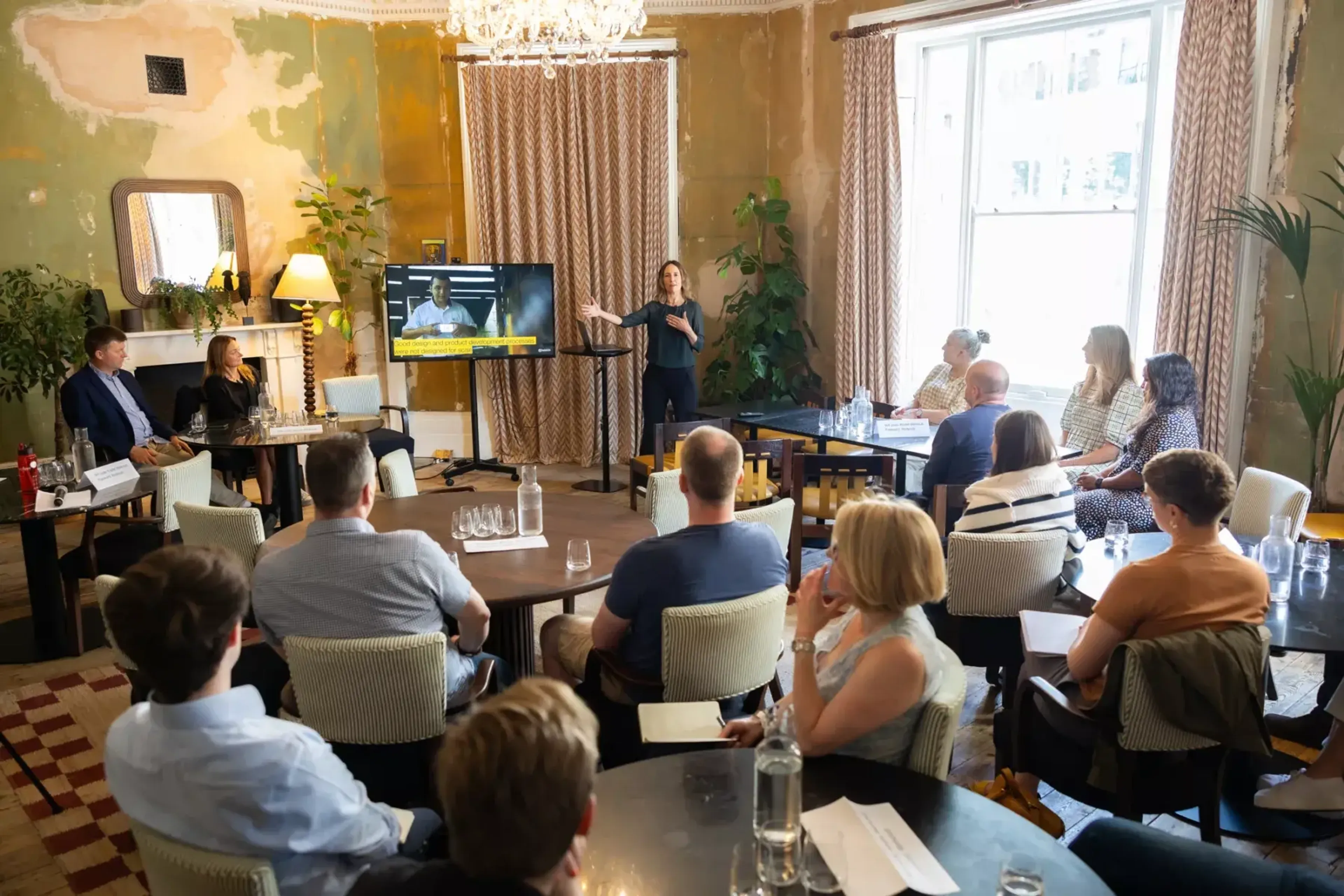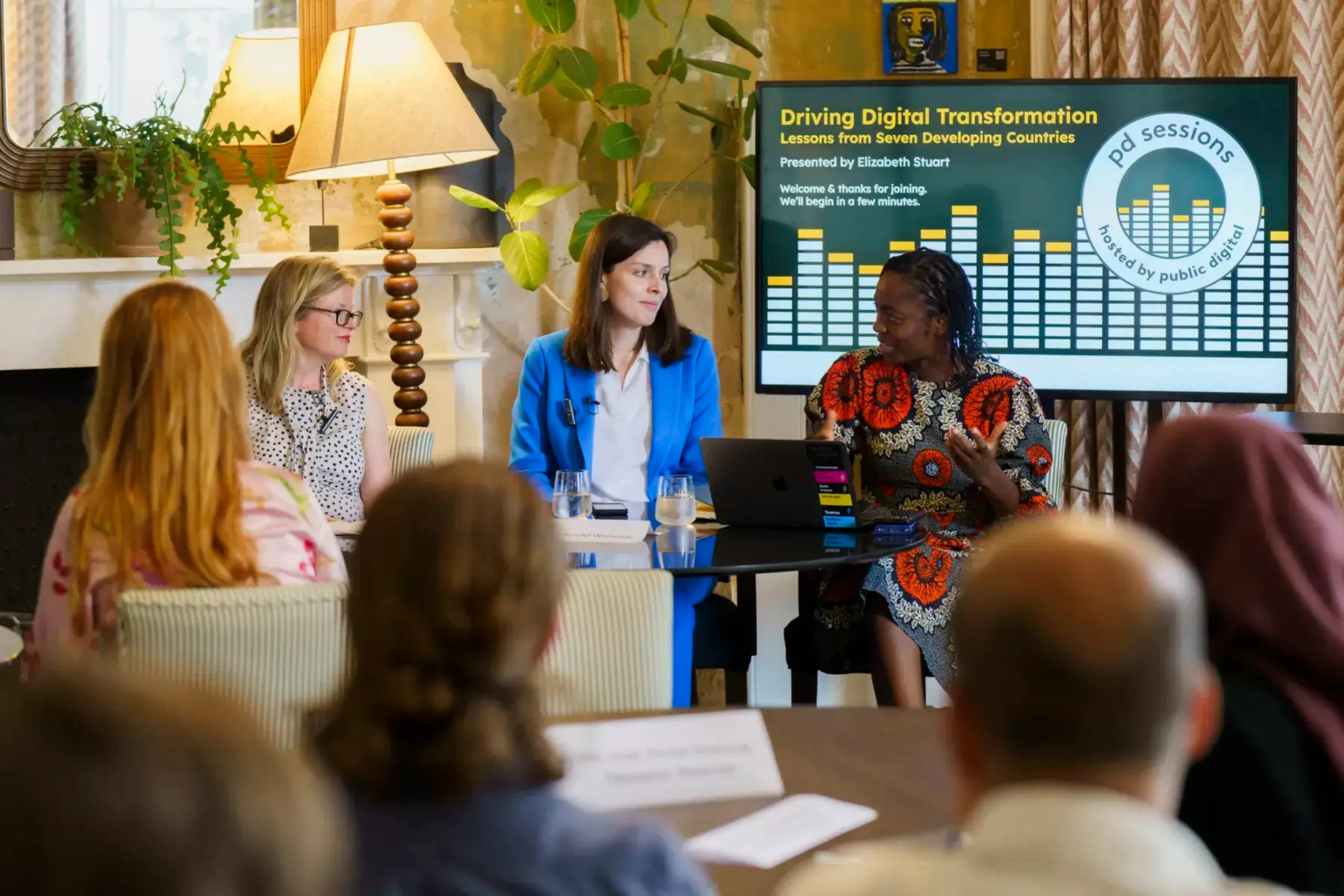
PD Sessions: Digital and Democracy
Last week, we hosted the third of our PD Sessions series, focusing this time on ‘Digital and Democracy’.
Public Digital spends a lot of time talking about and working on digital government. This event was a bit different, focusing instead on what digital transformation means for legislatures - the law making bodies of democratic countries.
Separate from the executive powers of government, legislatures play a pivotal role in the health and functioning of healthy democracies. A huge part of the political ecosystem, they are themselves scrupulously impartial bodies.
The panel represented three of the most historic legislative bodies in the world, from the UK, Canada and the US: Dan Cook (Interim CIO & Managing Director, Parliamentary Digital Service) Libby Kurien (Programme Director, Parliamentary Digital Service), Benoit Dicaire (Director General, Digital Enablement and Innovation, House of Commons of Canada) and Chris Jordan (CIO, US Senate)
Tradition versus progress
Many of the functions and roles played by legislative digital leaders are familiar across the 3 countries we heard from. They face similar conditions and trade-offs, such as occasional tensions and operational differences between the chambers in a bicameral system. They also have to manage the multiple roles of their users; democratically elected officials are law-makers, but they are also representatives of constituents, and employers of staff.
The legislatures of the US, Canada and the UK are centuries old. All of them hold a strong attachment to tradition. Respecting those traditions and reconciling with them with the need to progress is one of the biggest challenges for digital leaders in most public institutions - but that’s especially true in law-making bodies, where precedents count for a lot.
The UK Parliamentary Digital Service deliberately sought to bring people into the team with the experience to give a translation layer between the digital world and that of Parliament.
Having people who understand the rules and norms on both sides - both written and unwritten - can be really powerful in showing the fact there often isn’t actually as much distance between what the two tribes are striving to achieve.
The impact of Covid-19
All the panel members pointed to the Covid-19 pandemic as a moment of profound change for their institutions, one enabled by digital and technology.
Electronic voting, committee hearings via video conferencing software - all changes that would have been considered unthinkable pre-pandemic - were gratefully embraced in order to keep business flowing at a time of huge political stress.
In many cases, legislative business has rolled back to how things were before 2020. Yet there are some exceptions - in Canada, many committee hearings are still conducted remotely, not least because of the miles potentially involved for many witnesses travelling to Ottawa. In the US Senate, while much of the day to day closely resembles the pre-Covid rhythm, there is now far more confidence that if legislative business needed to be done remotely, it could be.
While some of the more radical features of pandemic law-making have been rolled back, legislatures have witnessed significant progress over the past decade. Live-streaming has made chambers and committee rooms more accessible to the public. There is less paper. And as the demographics of elected representatives change, so do their demands.
Like all digital service users, their expectations are rising all the time. While many ancient traditions will doubtless continue, the business of lawmaking is quietly undergoing a digital transformation too.
PD Sessions is a participatory events series which aims to broaden our conversation about digital and organisations beyond our clients and in doing so generate a community of practice. Subscribe to hear about future events.
